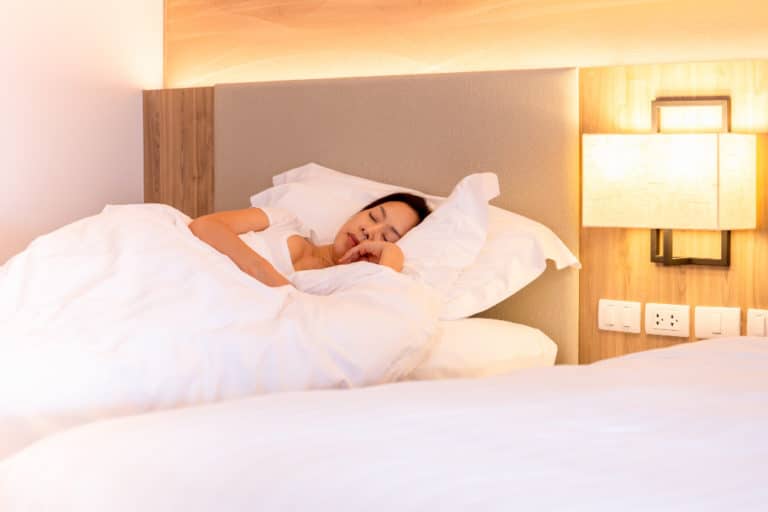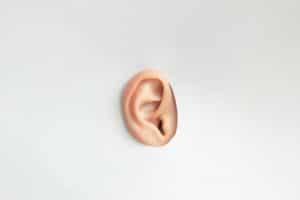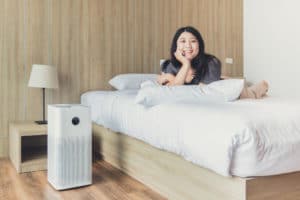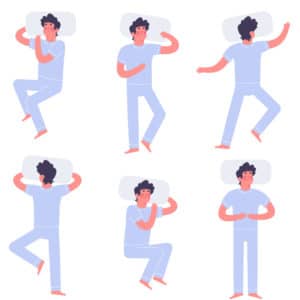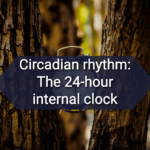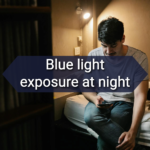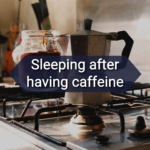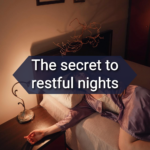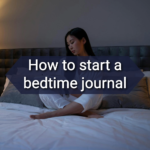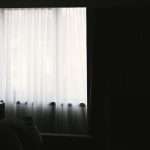People sleep with lights on for many reasons, including dozing off in bed without turning off the lights, or some people (kids in particular) are uncomfortable sleeping in complete darkness.
For others, though, sleeping in absolute darkness is a must-have for a good night’s sleep.
If you sleep with a nightlight or a bright overhead light on, you’ve likely asked yourself this question:
Is sleeping with lights on good or bad?
The short answer: It is not ideal.
That’s because exposure to bright light messes with your body’s internal clock (circadian rhythm).
Our ancestors used to sleep in the dark because they didn’t have many light sources around them – just what they could get from the sun during the day and fire at night.
But nowadays, that’s not always possible because we are constantly exposed to artificial light indoors, blue lights from TV screens, and other electrical devices.
So how does nighttime light exposure affect us? Read on to learn more.
Effects of light exposure during sleep
Studies have shown that exposure to light before bed reduces melatonin production, which results in difficulties falling asleep. That means sleeping with any light sources in the room is not recommended.
These are some ways how light exposure, even with dim light, can affect your sleep and your wellbeing:
1. Increased risk of developing sleep disorders
Having too much light before or during sleep will suppress melatonin and prevents deep sleep.
As deep sleep is important for your body and mind to recover from the day’s work, losing quality sleep will eventually take a toll on your body.
This can worsen trouble falling asleep at night and increase the risk of developing sleep disorders.
2. Tired and moody during waking hours
This is a common complaint from sleeping with lights on – feeling tired during the day.
When you’re deprived of enough sleep or have lost quality sleep, chances are you will feel tired and irritable during the day.
And that means a bad mood overall.
3. Increased blood pressure
While having light present in the room does not directly raise blood pressure, it can be correlated.
Bright light in the room can lead to loss of quality sleep; Not getting enough sleep regularly is a significant risk factor for increased blood pressure and can lead to hypertension.
Overweight individuals are more at risk, which brings us to the next point.
4. May lead to weight gain
While not conclusive, studies have shown a correlation between nighttime light exposure and weight gain.
Blame it on melatonin – this hormone is known to regulate appetite.
When your body’s clock is messed up (due to constant bright light exposure), chances are you won’t feel hungry at the right time.
And this is how you can gain weight if you consistently eat at the wrong times of the day.
5. Different sources of light that affect sleep
There is plenty of light sources at night that can stop you from getting a night of healthy sleep. These sources include light from:
- Natural light from the sun
- Fluorescent bulbs in your room
- Ambient light from street lights or a neighbors window
- Blue light emitted from screens such as TV, tablets, and mobile phones
Even tiny LED lights from items such as bedside lamps, clock lights, or mobile phone notification lights can affect sleep.
Different light sources affect us differently. For example, blue light from electronic devices is the worse culprit to melatonin suppression and heavily disrupts our sleep cycles.
Ambient light, on the other hand, has a less significant effect on our sleep.
Different colors of light have different effects on melatonin production as well. White and blue light suppresses melatonin more than red light.
What if I’m used to sleeping with the light on?
If you like sleeping with the lights on, you are not alone. There are many reasons people prefer sleeping with lights around, such as :
-
- Children afraid of the dark
- Adults who are used to sleeping with the light on
- People who have trouble falling asleep in total darkness
- People who fall asleep while watching TV in bed
While sleeping in darkness is recommended, it is not the end of the world.
When you’re ready, you can start transitioning to sleeping in darkness by gradually dimming the lights in your room over at least one week, then start to try and sleep in the dark.
How do I adjust my bedroom environment to get the best sleep?
People who live close to street lamps or in busy neighborhoods are more likely to have trouble sleeping because of increased ambient light.
You can’t control what light sources are outside your home, but there are still ways you can get quality sleep.
1. Use blackout curtains
If you can see the light coming through with your curtains closed, you may consider switching to a blackout curtain.
They are thick and are designed to absorb light, leaving your room completely pitch black.
In addition, the materials block heat from the sun, keeping your room cool in the summer.
Blackout curtains are great for providing total darkness and are great paired with a sunrise alarm clock.
If a new set of curtains is not an option, you can also use a sleep mask to block out light in and outside the room.
2. Use dim night lights in the hallways and bathroom
Opt for a night light with an adjustable brightness setting when possible.
It should be dim enough, so it is not obvious in your room but provides enough light when using the bathroom or passing by the hallway in the dark.
Reading your bedtime story with a brighter lamp can interfere with melatonin production and signal that it’s time to wake up.
3. Cover up lights before sleeping
Make sure all electronic devices that emit lights are turned off or covered physically.
Devices such as alarm clocks can emit light, too, so make sure you cover them up or turn the light off.
And if the room has harsh overhead lights, consider replacing them with soft incandescent bulbs with warm colors.
Conclusion
Sleeping with the lights on is a personal preference for many, but it can have some negative effects on your sleep.
If you’re not sleeping well, make sure to review your sleep environment, with an eye toward reducing or eliminating ambient light.
Try out different methods of blocking out light (blackout curtains, sleep mask) and setting up your room (dimmable lights, turning off electronics), until you find the perfect combination for you.
Remember, there’s no one-size-fits-all solution to getting the best sleep, as sleep habits and preferences vary for everyone.

